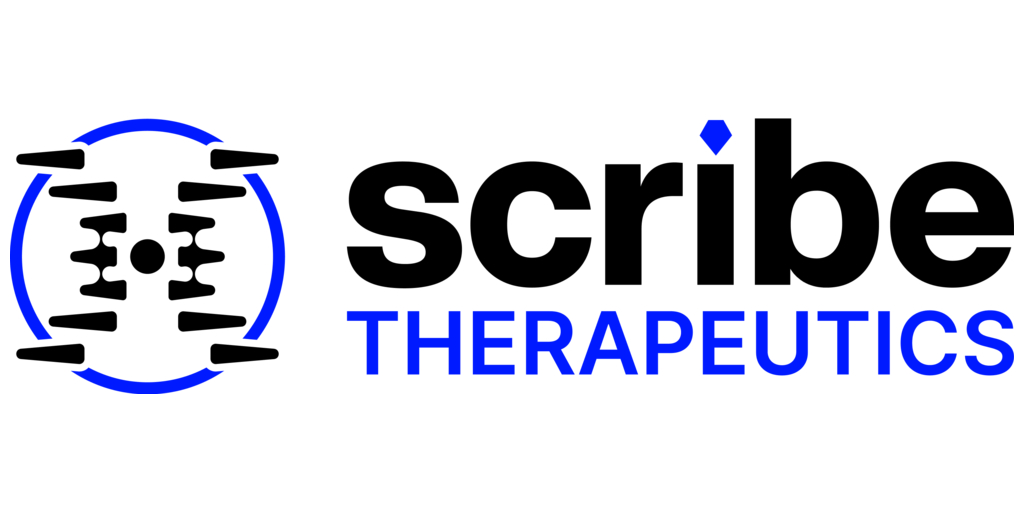- EAS late-breaker spotlighted that Scribe’s novel epigenetic silencer, ELXR, achieves 9+ months of >50% LDL-C reduction in non-human primates, surpassing current standard of care therapies for LDL-C lowering
- ASGCT presentations showcased Scribe’s highly engineered genome editor, XE, as a promising approach to address muscular dystrophies such as Duchenne Muscular Dystrophy
ALAMEDA, Calif.--(BUSINESS WIRE)--#CRISPR--Scribe Therapeutics Inc. (Scribe), a genetic medicines company unlocking the potential of CRISPR to transform human health, presented data on two therapeutic applications of its genome editing and epigenetic silencing technologies at recent medical and scientific conferences.


At the 93rd European Atherosclerosis Society (EAS) Congress, Scribe reported preclinical results in a late-breaking presentation highlighting its Epigenetic Long-Term X-Repressor (ELXR) as the first CRISPR epigenetic editor that potently and durably targets PCSK9 and lowers low-density lipoprotein cholesterol (LDL-C) after therapeutic dosing of <1mg/kg in non-human primates. This breakthrough could offer a more effective alternative to existing LDL-C lowering treatments, particularly for patients at high risk of atherosclerotic cardiovascular disease (ASCVD).
“We are pleased to share this industry first for potently and durably lowering LDL-C as part of our latest progress pushing the frontiers of epigenetic silencing and CRISPR technology more broadly,” said Aarif Khakoo, M.D., M.B.A., Chief Scientific Officer and Head of Research and Development at Scribe. “ELXR, Scribe’s epigenetic silencer, is designed to be a safer alternative to existing approaches by circumventing industrywide challenges with off-target effects and effectively reaching large patient populations, including the millions of people affected by cardiometabolic disease.”
At the 28th American Society of Gene & Cell Therapy (ASGCT) Annual Meeting, Scribe showcased the potential of its X-Editor (XE) genome editing technology to target the underlying genetic causes of Duchenne Muscular Dystrophy (DMD) with high editing efficiency and precision. While recent advances in gene therapy offer some hope for DMD patients, existing technologies face challenges; Scribe’s advancements focus on developing a more effective approach to directly address these genetic mutations.
“These compelling data further underscore the precision and therapeutic impact of Scribe’s engineered CRISPR technologies,” said Benjamin Oakes, Ph.D., co-founder and CEO of Scribe. “We’re thrilled to achieve groundbreaking results across multiple fields, from demonstrating in vivo saturated genome editing in muscle tissue at exceptionally low AAV doses, to proving that the durability of our epigenetic CRISPR approaches to reduce LDL-C can set a new standard for therapeutic durability in ASCVD without permanent genetic modification. These milestones highlight the strength of Scribe’s CRISPR by Design™ approach and our ongoing progress toward redefining the standard of care for devastating diseases.”
Summarized below are highlights from the company’s presentations.
EAS late-breaking presentation: Potent, Durable, and Safe LDLc Reduction in Non-Human Primates with a Novel CRISPR-based Epigenetic Silencer at Therapeutically Relevant Doses
- Scribe has engineered a STX-1150 prototype, a CasX-based epigenetic silencer to target PCSK9, that achieves potent LDL-C lowering with no significant off-target gene expression at a supersaturating dose in vitro.
- In non-human primates, the STX-1150 prototype methylates and suppresses the PCSK9 locus, resulting in a sustained LDL-C reduction of up to 68% in non-human primates for over 9 months.
- At a therapeutically relevant dose of 0.75 mg/kg, the STX-1150 prototype lowers LDL-C by >50% and demonstrates a favorable tolerability profile, positioning it as a potentially safe and effective treatment option for LDL-C lowering.
- Scribe’s CasX-based epigenetic therapy shows potential for superior durability compared to current LDL-C lowering agents.
ASGCT presentation: Advancing the Novel CasX-Editor for Precise Genome Editing to Address Muscular Dystrophies
- Scribe has engineered a highly potent X-Editor (XE) that shows promise in targeting the underlying genetic mutations that cause Duchenne Muscular Dystrophy (DMD).
- In DMD patient-derived cells, XE achieves therapeutically relevant levels of editing of the DMD gene, resulting in robust dystrophin protein restoration.
- XE’s compact size allows efficient packaging into a single all-in-one adeno-associated virus (AAV) vector. Systemic delivery of these vectors enables efficient in vivo editing in muscle tissue at exceptionally low AAV doses, marking a significant advancement in the safety and efficacy of AAV-mediated gene therapy.
- The findings underscore XE’s potential as a powerful and versatile genome editing tool for treating DMD and other inherited neuromuscular disorders.
About Scribe Therapeutics
Scribe Therapeutics is revolutionizing medicine by developing optimized in vivo CRISPR-based genetic medicines designed to become standard of care treatments for patients suffering from highly prevalent diseases, starting with cardiometabolic disease. The company is on a mission to build the first CRISPR-based therapeutics that are effective and safe enough to transform everyone’s lifetime risk for disease. Scribe’s CRISPR by Design™ approach engineers bacterial immune systems into a premier suite of genome and epigenome editing tools built for unique molecular advantages in activity, specificity, and deliverability, enabling the creation of therapies with a broader therapeutic window and safe for use as a preventative treatment. The company’s lead candidate, STX-1150, is a novel liver-targeted therapy designed to epigenetically silence the PCSK9 gene, resulting in significant and durable reduction of LDL-C levels. To broaden and accelerate the impact of its engineered CRISPR technologies for patients, Scribe has formed strategic collaborations with world-leading pharmaceutical companies including Sanofi and Eli Lilly. Co-founded by Nobel Prize winner Jennifer Doudna and backed by leading life sciences investors, Scribe is engineering the future of genetic medicine. To learn more, visit www.scribetx.com.
Contacts
Media Contact:
Thermal for Scribe Therapeutics
media@scribetx.com




